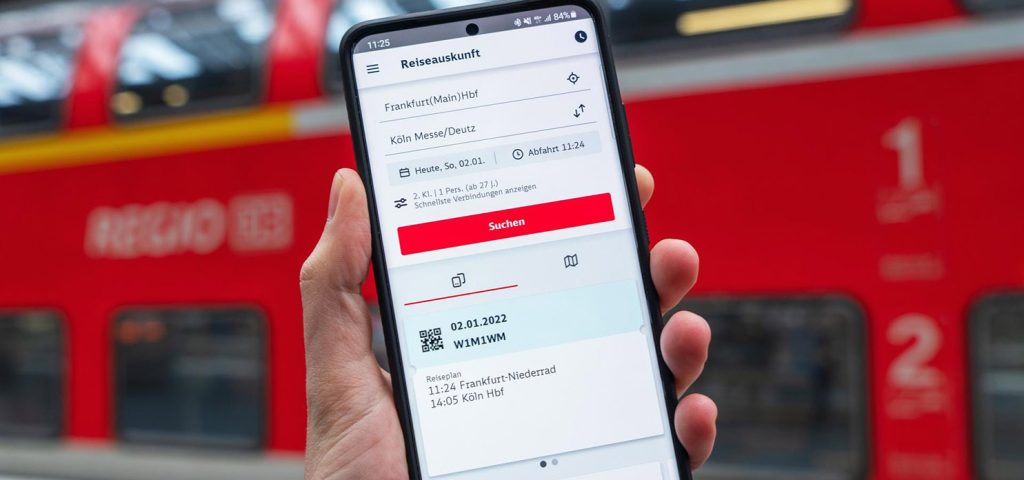To be honest, before stepping foot in Germany for the very first time, I spent countless hours scouring through every travel guide I could find—detailed itineraries, must-see landmarks, popular food spots, and even insider tips shared by seasoned travelers. I thought I had everything perfectly planned. However, once I actually arrived on German soil, I quickly realized that many of the most helpful tips and little nuances were nowhere to be found in those typical guides. It wasn’t the big attractions, but the small practical details—those “cold facts” you don’t usually hear about—that made all the difference and truly saved me from unnecessary hassle during my trip.
1. Pre-Trip Checklist: Don’t Forget These Essentials!
1. Passport, Visa, and ID Copies are a Must
Germany is part of the Schengen Area, which means travelers from many countries need a valid Schengen visa to enter. Make sure your passport is valid for at least six months beyond your planned stay. In addition to the original documents, always carry photocopies and save digital versions on your phone or in the cloud. If your passport gets lost or stolen, having backups will make dealing with authorities and your embassy much easier. Also, some hotels might ask for ID at check-in—having quick access saves time.
2. Mobile Internet: Get a German eSIM Instantly with Airalo
Forget the hassle of hunting down a SIM card kiosk after landing. With Airalo, you can download a German eSIM directly onto your phone before departure or as soon as you land. It activates in minutes, no physical SIM swap needed. I used it to navigate from the airport, message my Airbnb host, and find a local café within minutes of arrival. The best part? Airalo has several great Germany and Europe packages. For example:
Hallo! Germany (1 GB / 7 days) – perfect for short city breaks.
Hallo! Germany (3 GB / 30 days) – great for moderate users.
Eurolink Regional (5 GB / 30 days) – ideal if you plan to visit multiple EU countries.
All these options offer reliable LTE coverage and simple activation via the Airalo app. No stress, no roaming charges, just fast internet on the go.
3. Power Adapter and Power Bank
Germany uses Type F electrical outlets and operates on a 230V supply voltage with 50Hz. If your devices are from outside Europe, you’ll need a reliable universal adapter that supports this type. I suggest bringing at least two—one for your hotel and one for your day bag in case of emergencies. Additionally, carry a high-capacity power bank (10,000mAh or more). You’ll likely use your phone for navigation, translation, photography, and ticketing apps, which drains the battery quickly. A power bank means no mid-day panic searching for a café with plugs.
4. Always Carry Some Cash
Even though Germany is highly developed, card usage isn’t as widespread as you might expect. While major cities like Berlin or Munich are becoming more card-friendly, many places—including bakeries, market stalls, and even some train station kiosks—only accept cash. In rural areas or small towns in Bavaria, cash is often the only option. ATMs (called “Geldautomat”) are widely available, but international cards may incur withdrawal fees. I recommend exchanging a reasonable amount of euros before your trip or withdrawing from a trusted bank upon arrival.

2. Getting Around in Germany: How to Travel Smoothly from Airport to Town
1. Germany’s Rail Network is Excellent—But Book in Advance!
The Deutsche Bahn (DB) rail system connects almost every city—Frankfurt, Munich, Cologne, Hamburg, you name it. Booking tickets in advance can save you a lot of money—sometimes up to 50%!
Before my trip, I downloaded the DB Navigator App. It’s great for ticket bookings and real-time train updates. If you plan to travel a lot by train within Germany, consider getting the Germany Pass.
2. In Cities, Use Public Transit and Walk
Big cities like Berlin, Munich, and Hamburg have efficient metro systems. Trams and buses are also widely available. Day or three-day passes are usually more cost-effective than single-ride tickets.
I recommend downloading the city’s transit apps, like MVV or BVG, for easy route planning.
And here again, Airalo proved invaluable. A stable internet connection helped me check transit routes and maps on the go. Without it, I could have missed buses or gone the wrong way!
3. Renting a Car? Know the Pitfalls
If you plan to explore areas like the Black Forest, the Romantic Road, or Neuschwanstein Castle, renting a car is a great idea.
However, don’t assume the Autobahn means free-for-all speeding—most sections still have speed limits. Always follow traffic rules.
To rent a car in Germany, you’ll need an international driver’s license translation. Make sure your rental includes insurance and check if cross-border driving is allowed. Gas is expensive—refill before returning!
3. Where to Stay: Location Over Price!
Hotels and Airbnbs in Germany are quite reasonably priced. I always prioritize staying near city centers or transportation hubs—it saves a lot of commuting time. Areas like Munich Central Station, Cologne Cathedral, and Alexanderplatz in Berlin are all prime spots.
A heads-up: many hotels in Germany don’t have 24-hour front desk service. If you arrive late, you might be locked out!
Once, a delayed flight almost made me miss check-in, but thanks to Airalo, I contacted the host online in time. Another reason I recommend it—you’ll feel much safer and more connected abroad with reliable internet.
4. German Food: More Than Just Sausages and Beer
1. Must-Try German Dishes
• Schweinshaxe (Roast Pork Knuckle): Crispy on the outside, tender inside. Best served with sauerkraut and mashed potatoes.
• Wurstplatte (Sausage Platter): Germans love their sausages—try different kinds!
• Black Forest Cake: From the Black Forest region, rich chocolate meets cherry liqueur.
• Pretzel (Brezel): A popular street snack—salty and satisfying, perfect on the go.
2. Tipping Is a Must
Unlike some countries, German restaurants don’t include service fees in the bill. You’re expected to tip around 5–10%. Simply round up or tell the server the total you’d like to pay. For example, if the bill is €18, say “20 euro, please” to include the tip.
3. A Vegetarian’s Dream
Germany’s vegetarian and vegan scene is impressive. Many places have dedicated vegan menus, and even sausages have plant-based versions. I had an amazing vegan burger in Berlin—it was delicious and memorable!
5. German Culture & Etiquette: Know These “Unwritten Rules”
1. Not Saying Hello = Rude
Germans might seem reserved, but they’re very polite. Whether you’re in an elevator, a store, or a restaurant, always greet people with a “Hallo” or “Guten Tag”—even if you don’t know them.
2. Don’t Jaywalk!
Germans strictly follow traffic rules. Even at night with no cars in sight, they’ll wait for the green light. If you jaywalk, expect stares—or even a warning from the police.
3. Say No to Plastic and Waste
Germany is an eco-conscious country. Supermarket bags aren’t free, so bring your own. Hotels often don’t provide single-use toiletries.
With Airalo, you can easily look up “unpackaged stores” and experience Germany’s top-tier eco practices firsthand.

6. Bonus Travel Tips: Tried-and-Tested Hacks You Should Know
1. Staying Connected is Everything: Airalo Has Your Back
From restaurant searches, maps, and train schedules to translating menus and contacting hotels—internet is key. Thanks to Airalo, I didn’t have to queue for SIM cards or worry about losing connection. It covered me across Germany and even beyond.
Once, I got lost in Munich’s old town. With Airalo keeping me connected, I used Google Maps to find my group quickly. I highly recommend installing your eSIM before landing—don’t wait until you’re in trouble!
2. Don’t Overlook Supermarkets
German supermarkets like Aldi, Lidl, and Rewe are treasure troves! Affordable and authentic, they offer great local snacks and souvenirs. Don’t miss the €1 packs of German cookies—perfect gifts to bring home!
3. Stay Alert and Safe
Germany is generally safe, but watch out for pickpockets in busy areas like train stations and tourist spots. Keep your belongings close. With Airalo, I always stayed connected and could call for help or navigate back to my hotel at any time—it gave me peace of mind.
7. Travel Isn’t Just Sightseeing—It’s About the Experience
From booking trains and choosing the right food, to staying online anytime and anywhere—these are all lessons I learned firsthand.
And if I had to pick just one must-have tool, it would be Airalo. This app took care of all my connectivity issues, kept me online throughout Germany and Europe, and spared me the hassle of queues and SIM swaps.
Wishing you a wonderful trip to Germany—don’t just skim the surface with basic guidebooks. Walk with your own feet, see with your own eyes, and let Airalo help you truly experience the culture and beauty of this incredible country.